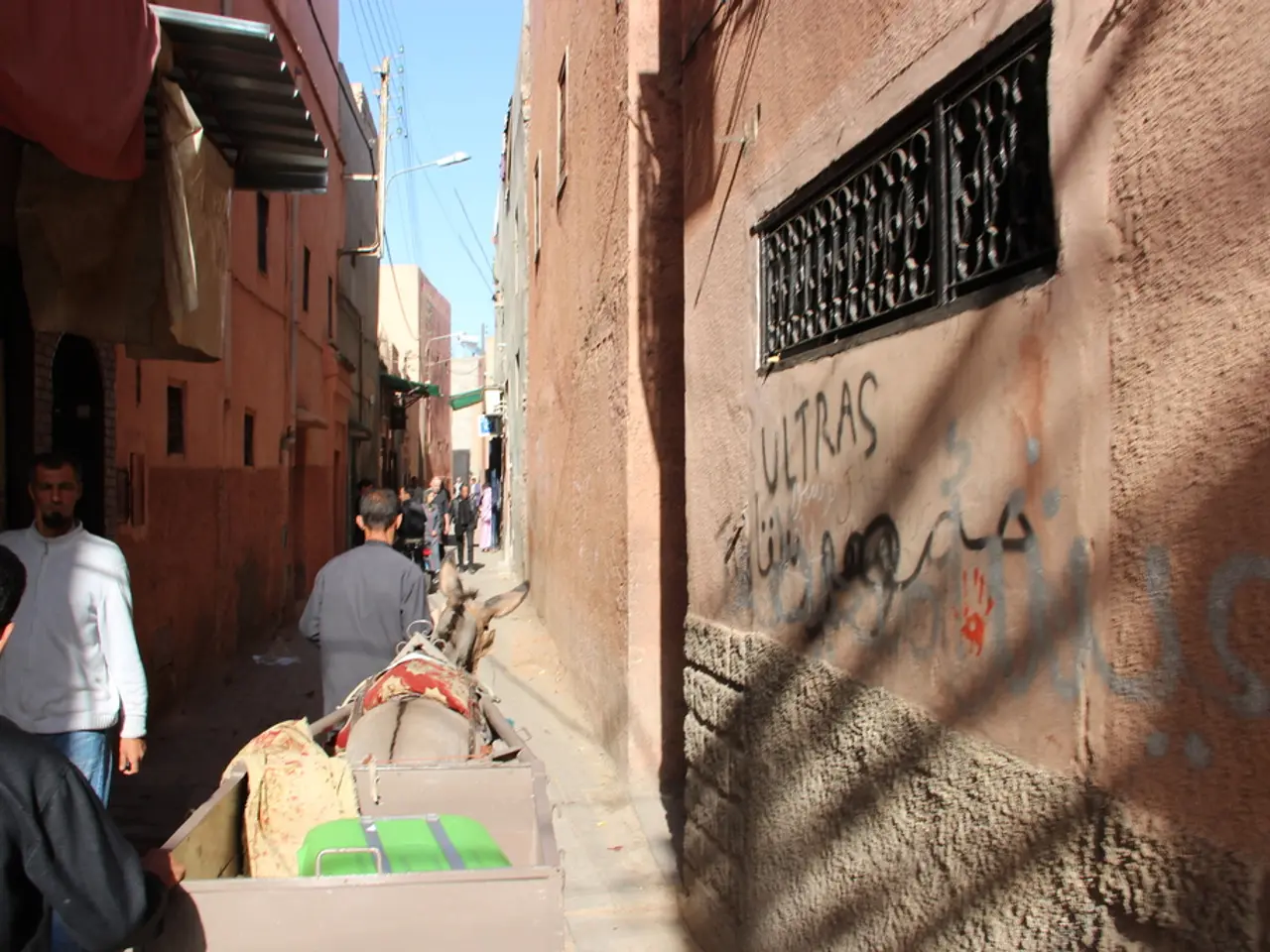Clandestine compensation for civil servants: Hamas' covert use of coffee and monetary means
In the midst of the ongoing conflict in Gaza, a complex web of financial transactions has emerged, with Hamas allegedly receiving funds from various sources to pay salaries to its employees.
According to reports, the Israeli army discovered safes and bags containing large sums of money in tunnels under Gaza, suggesting cash transfers from Iran to Hamas. However, the primary sources of financing for Hamas salary payments in the Gaza Strip since 2024 are not clearly detailed.
Before the war, Hamas's government employed an estimated 40,000 people, drawing revenue from customs duties and taxes to run public services. Despite Israel's blockade, Hamas obtains cash mainly through smuggling via tunnels dug near the border or by sea.
The salary payment process is "very complex" and changes according to the security situation. Civil servants who are members of Hamas are reportedly the ones receiving payments, at least in part and with delays. Senior Hamas officials receive their salaries in secret locations, such as displacement camps or schools turned shelters, to avoid strikes.
Alaa, a teacher at a public school in Gaza City, last received a salary in June. Abdallah, a teacher, last received his salary (950 shekels) in July, stretching it to feed 20 extended family members after his three brothers were killed near aid distribution sites.
Israel's military has repeatedly targeted people sent by Hamas to deliver salaries. Alaa had to go to a school sheltering displaced people in northern Gaza to receive her salary, and had to return the next day after a bombing. Karim, a public works ministry employee in Gaza, received an invitation for a meeting that turned out to be a salary delivery.
Karim received 1,000 shekels (US$298), which was part of his pre-war salary of 2,900 shekels. Officials complain their wages are not enough to meet basic needs, in a territory where the United Nations declared famine last month.
From 2021 until the start of the war in Gaza in 2023, Qatar pledged $360 million in annual funding to the Palestinian territory, at Israel's request, which included salaries of civil servants such as doctors and teachers. However, only civil servants who are members of Hamas are reportedly getting paid.
Hamas officials had claimed, before the war in Gaza, to have received financial support from Iran, though the Islamic republic has never confirmed providing funds. No direct, updated sources specify new or ongoing financing channels explicitly for Hamas salaries in 2024 from the documents provided.
Despite Israel's efforts to target Hamas's financial infrastructure, including bombing Hamas-owned banks and assassinating financial system officials, these actions have not stopped the financial process. The Israeli army regularly carries out strikes on schools, where displaced people shelter, accusing fighters from Hamas and other militant groups of using them as bases and command posts.
In conclusion, the ongoing conflict in Gaza has created a complex web of financial transactions, with Hamas allegedly receiving funds from various sources to pay salaries to its employees. The exact sources of financing are not clear, but external donor countries such as Qatar have historically been involved in financial support to Hamas, with Israel demanding close monitoring of aid distribution to prevent Hamas from diverting humanitarian funds.
Read also:
- Tobacco industry's suggested changes on a legislative modification are disregarded by health journalists
- Trump's Policies: Tariffs, AI, Surveillance, and Possible Martial Law
- Uncovering Political Ad Transparency: A Guide to Investigating opponent's Political Advertisements in the Digital Realm
- Elon Musk praises JD Vance's debate performance against Tim Walz








